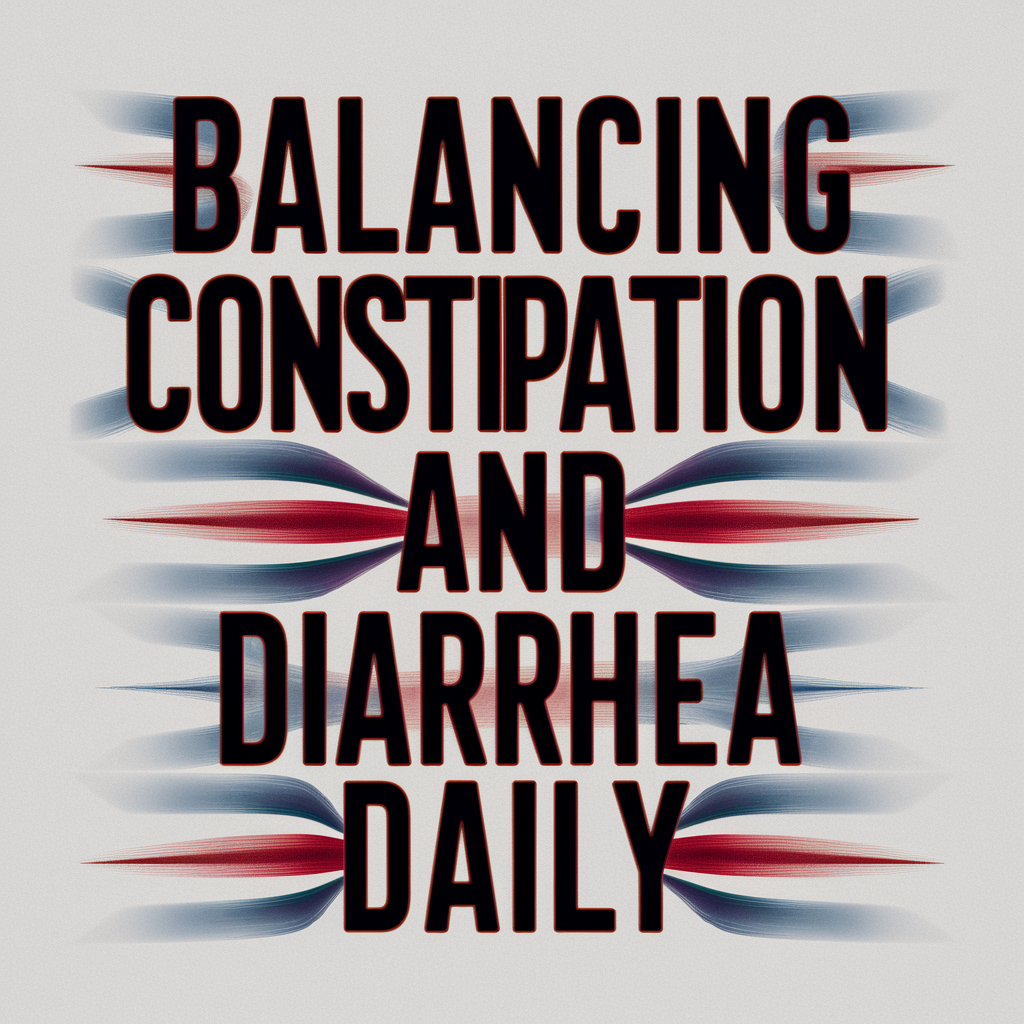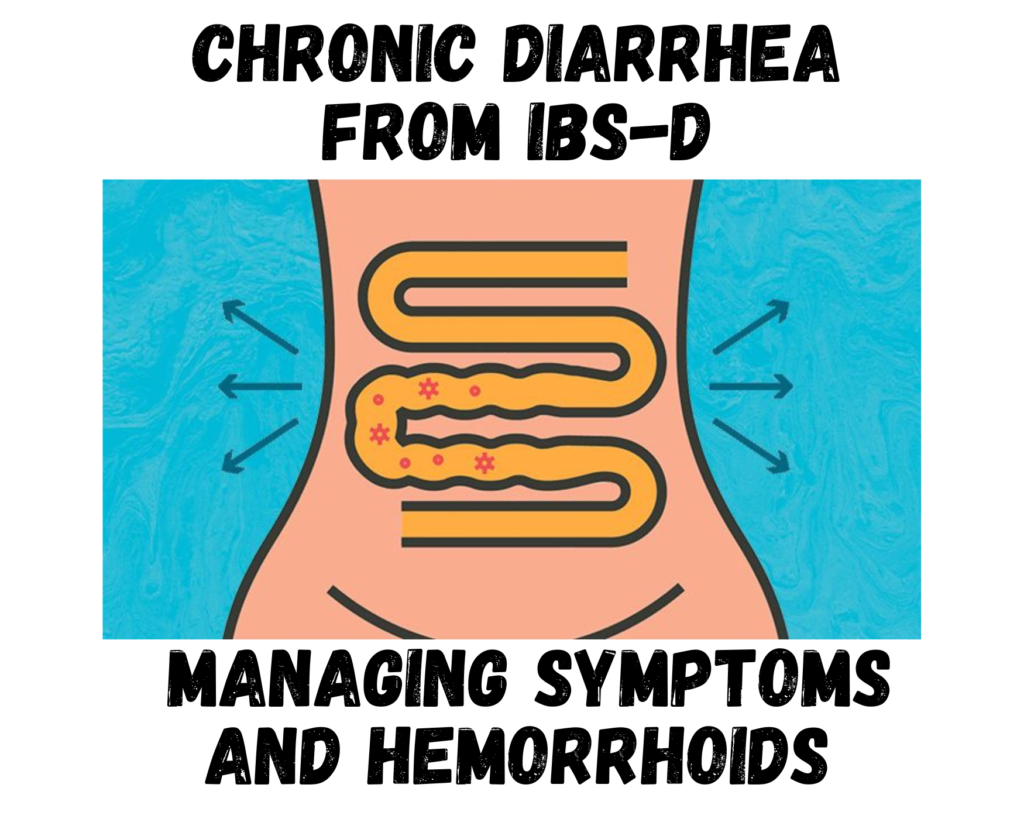
My Personal Journey with IBS-M
Living with IBS-M (Irritable Bowel Syndrome-Mixed) has been a challenging journey for me, and it’s something that many people may not fully understand. For years, I thought I was dealing with IBS-D, where diarrhea was my main issue. But as I got older, I started noticing that I wasn’t just running to the bathroom anymore—sometimes I was struggling to go at all. That’s when I realized that what I actually have is IBS-M, a condition where both diarrhea and constipation can hit you, sometimes even on the same day. Let me tell you, it can be rough.
If you’re like me and have experienced both ends of the IBS spectrum, you know how unpredictable and frustrating it can be. One minute, you’re dealing with the urgency of diarrhea, and the next, you’re uncomfortable and bloated from constipation. It’s like your digestive system can’t make up its mind, and that can make daily life pretty difficult.
In this article, I want to share my personal experience with IBS-M, what I’ve learned about managing it, and some strategies that have helped me cope. Whether you’re newly diagnosed or have been dealing with IBS-M for a while, I hope my story and tips can offer some guidance and maybe even a bit of relief.

What is IBS-M and How Does It Differ from IBS-D and IBS-C?
When I was first told I had IBS-D, it made sense—I was dealing with diarrhea most of the time. But over the years, something changed. I started experiencing episodes of constipation, sometimes in the same day as diarrhea. That’s when I learned about IBS-M, or Irritable Bowel Syndrome-Mixed. IBS-M is a bit different because it involves both constipation and diarrhea, and you can experience either (or both) at any time.
Understanding the Mixed Nature of IBS-M
IBS comes in a few forms: IBS-D (diarrhea-predominant), IBS-C (constipation-predominant), and IBS-M (mixed, involving both diarrhea and constipation). IBS-M can be especially tricky to manage because you’re dealing with opposing symptoms. For example, you might wake up with constipation and feel bloated and uncomfortable, but later in the day, you’re running to the bathroom with diarrhea. It’s like your digestive system can’t decide which way to go, and that unpredictability can make planning your day a real challenge.
For me, managing IBS-M has required a lot of trial and error. I’ve had to adjust my diet, stress levels, and even my exercise routine to find some balance. One thing that has really helped is focusing on gut health. Keeping my digestive system as healthy as possible helps reduce the frequency and severity of both symptoms. That’s where probiotics come in.

Taking a daily probiotic like Garden of Life Once Daily Dr. Formulated Probiotics for Women has made a noticeable difference for me. This probiotic is designed to support digestive health, which is crucial when you’re dealing with the mixed symptoms of IBS-M. It’s helped me maintain a more balanced gut, which in turn, has made my symptoms a bit more predictable and easier to manage.
Recognizing the Symptoms of IBS-M
IBS-M symptoms can vary widely from person to person, but the hallmark is that you experience both constipation and diarrhea. Some other common symptoms include:
- Bloating and Gas: Feeling bloated and gassy is common, especially when your digestive system is swinging between constipation and diarrhea.
- Abdominal Pain: Cramping and pain in the abdomen are frequent with IBS-M, often varying in intensity depending on which symptom is more prominent at the time.
- Urgency and Incomplete Bowel Movements: You might feel an urgent need to go to the bathroom but still feel like you haven’t fully emptied your bowels.
If you’re experiencing these symptoms and they seem to shift between constipation and diarrhea, you might be dealing with IBS-M. It’s a frustrating condition because it’s hard to predict what your body will do next, but understanding what’s happening can help you take steps to manage it better.
For those dealing with constipation as part of their IBS-M, it’s also important to understand where constipation pain might be felt. This can help you recognize when your symptoms are about to change. For more detailed information, check out Where Is Constipation Pain Felt in the Back? Signs and Symptoms.

Common Triggers and How to Manage Them
One of the most frustrating things about living with IBS-M is figuring out what triggers your symptoms. Since IBS-M involves both constipation and diarrhea, identifying and managing triggers can be especially challenging. In my experience, understanding these triggers and learning how to manage them has been key to keeping my symptoms under control.
Dietary Triggers and Their Impact on IBS-M
Diet plays a huge role in managing IBS-M. Certain foods can either speed up or slow down your digestive system, leading to the mixed symptoms we experience. For example, high-fat foods can trigger diarrhea, while low-fiber diets can contribute to constipation. Finding a balance in what you eat is crucial.
Personally, I’ve found that I need to avoid certain foods that tend to upset my stomach, like dairy, fried foods, and sometimes even certain fruits and vegetables. On the flip side, increasing fiber intake can help manage constipation, but you need to be careful about the type of fiber. Soluble fiber, found in foods like oats and bananas, can be easier on the digestive system compared to insoluble fiber, which might aggravate symptoms.

To support my gut health, I’ve started using Garden of Life Probiotics for Men, which has been a game-changer. This probiotic helps balance the gut flora, reducing both constipation and diarrhea. It’s been particularly helpful when I’m dealing with diet-related triggers, as it seems to keep my digestive system more stable.
If constipation is a significant part of your IBS-M symptoms, you might also want to explore natural remedies like herbal teas. For example, The Best Herbal Tea for Constipation has some great suggestions that can help ease constipation without the harsh side effects that some over-the-counter medications can cause.
Stress and Its Role in IBS-M Symptoms
Stress is another major trigger for IBS-M. I’ve noticed that my symptoms often flare up during stressful times—whether it’s work-related stress, personal issues, or even just the anxiety of managing my condition. Stress affects the gut by disrupting its natural rhythm, which can lead to the alternating symptoms of IBS-M.
To manage stress, I’ve tried a variety of techniques, from mindfulness meditation to regular exercise. Both have helped, but I’ve also found that maintaining a healthy gut through probiotics has a calming effect on my digestive system. For example, the Garden of Life Dr. Formulated Probiotics Organic Kids+ is something I’ve even considered for my family. While it’s formulated for kids, the principles are the same—supporting gut health can reduce the frequency and intensity of IBS-M symptoms, making life a little easier for everyone.
Finding ways to reduce stress in your daily life, whether through exercise, hobbies, or simply taking time to relax, can have a significant impact on your IBS-M symptoms. It’s all about finding what works for you and sticking with it.

Managing IBS-M Symptoms: What Works for Me
Living with IBS-M means constantly adjusting and trying to find what works best to manage both constipation and diarrhea. Over time, I’ve discovered a few strategies and products that have made a significant difference in my daily life. While everyone’s experience with IBS-M is unique, these are some of the approaches that have helped me maintain better control over my symptoms.
Probiotics and Gut Health
One of the most effective tools in my IBS-M management toolkit has been the use of probiotics. When I first started experiencing mixed symptoms—swinging between constipation and diarrhea—I realized that my gut health needed some serious attention. That’s when I began incorporating probiotics into my daily routine.

For women like myself, Garden of Life Once Daily Dr. Formulated Probiotics for Women has been a lifesaver. This particular probiotic is designed to support digestive health by balancing the gut flora, which can reduce the severity and frequency of IBS-M symptoms. I’ve noticed that when my gut is in better balance, I experience fewer swings between constipation and diarrhea, and my overall digestive comfort improves.
For men, Garden of Life Probiotics for Men offers similar benefits, specifically formulated to meet men’s digestive needs. My partner, who also deals with digestive issues, started using it, and we’ve both seen a reduction in our IBS-M symptoms.
The key is consistency—taking a probiotic daily has helped stabilize my digestive system, making my symptoms more predictable and manageable.
Natural Remedies and Daily Management
In addition to probiotics, I’ve found that certain natural remedies and lifestyle changes can make a big difference in managing IBS-M. For instance, staying hydrated and eating a balanced diet with plenty of soluble fiber has helped regulate my bowel movements. When I need extra help with constipation, I turn to herbal teas designed to ease digestive discomfort. The Best Herbal Tea for Constipation has been particularly effective for those tough days when nothing else seems to work.
Another essential part of my daily management is listening to my body. Some days, I know I need to eat lighter, easier-to-digest foods, while other days, I can handle a bit more variety. It’s all about paying attention to what your body is telling you and adjusting accordingly.
I’ve also learned to prepare for unexpected flare-ups, especially when I’m out and about. Having quick access to a restroom or carrying essential items like a portable bidet can make a huge difference. For those considering this option, Best Bidets: Comfort and Cleanliness Redefined offers some great suggestions for maintaining comfort and hygiene when IBS-M symptoms strike unexpectedly.
Managing IBS-M is all about finding the right balance and being prepared for the ups and downs. With the right tools and strategies, it’s possible to live a full life despite the challenges of this condition.

How to Cope with the Daily Challenges of IBS-M
Living with IBS-M isn’t just about managing symptoms—it’s about navigating daily life with a condition that can be unpredictable and sometimes overwhelming. From dealing with symptoms at work to managing social situations, coping with IBS-M requires a lot of planning and flexibility. Here’s how I’ve learned to handle some of the most common challenges.
Balancing Work and IBS-M
Managing IBS-M while working can be particularly tough, especially when symptoms strike unexpectedly. I’ve had to learn how to plan my workday around my symptoms, which means being prepared for anything. On days when I’m dealing with diarrhea, I make sure I know where the nearest restroom is and try to schedule meetings or tasks that allow for breaks. On the flip side, when constipation is the issue, I focus on staying hydrated and moving around as much as possible to encourage digestion.
One of the best strategies I’ve found is to keep a small kit at work that includes essentials like a change of clothes, over-the-counter medications, and a portable bidet for comfort and hygiene. It might sound a bit much, but trust me—having these items on hand can be a lifesaver. If you’re considering adding a bidet to your routine, Best Bidets: Comfort and Cleanliness Redefined provides helpful insights into choosing the right one.
Navigating Social Life with IBS-M
Social situations can also be tricky when you’re living with IBS-M. Whether it’s a dinner out with friends or attending an event, the fear of a sudden flare-up is always in the back of my mind. To cope, I’ve developed a few strategies that help me feel more in control.
First, I always try to eat something small and safe before going out. This way, I’m less likely to be hungry enough to take risks with foods that might trigger my symptoms. I also make sure I know where the restrooms are at any venue I’m going to. It’s a simple thing, but it gives me peace of mind knowing I have a plan if my symptoms start acting up.

When it comes to explaining my condition to others, I’ve found that honesty is the best policy. I keep it simple, letting people know that I have a digestive condition that sometimes limits what I can eat or how long I can stay out. Most people are understanding, and it takes the pressure off me to pretend everything is fine when it’s not.
Another thing that helps is having supportive friends and family who understand the challenges of living with IBS-M. They know that I might need to cancel plans last minute or that I might have to leave early. Having this support makes it easier to manage the social aspects of IBS-M without feeling guilty or stressed.

Symptoms of IBS-M: What to Watch For
IBS-M, or Irritable Bowel Syndrome-Mixed, is unique in that it involves both constipation and diarrhea, often making it more unpredictable and challenging to manage than other forms of IBS. Understanding the symptoms of IBS-M is crucial for identifying and managing the condition effectively. Here’s a breakdown of the common symptoms you might experience with IBS-M:
Alternating Constipation and Diarrhea
- Frequent Shifts Between Symptoms: The hallmark of IBS-M is the frequent alternation between constipation and diarrhea. You might find yourself constipated in the morning, only to experience diarrhea later in the day. This back-and-forth can be exhausting and disruptive to daily life.
- Incomplete Bowel Movements: You may feel like you haven’t fully emptied your bowels, which can be frustrating whether you’re dealing with constipation or diarrhea.
Abdominal Pain and Cramping
- Pain Location and Intensity: Abdominal pain and cramping are common in IBS-M. The pain can vary in location and intensity, often related to whether you’re experiencing constipation or diarrhea at the time.
- Pain Relief with Bowel Movements: Sometimes, the pain may lessen after a bowel movement, but it can return quickly, especially with the alternating symptoms.
Bloating and Gas
- Persistent Bloating: Bloating is a common symptom of IBS-M, and it can be particularly uncomfortable when alternating between constipation and diarrhea.
- Excessive Gas: Increased gas production often accompanies bloating, leading to discomfort and embarrassment.
Urgency and Incontinence
- Sudden Urges: IBS-M can cause sudden, urgent needs to go to the bathroom, which can be particularly distressing when you’re out or at work.
- Accidents: In severe cases, the urgency may lead to incontinence, especially during episodes of diarrhea.
Mucus in Stool
- Presence of Mucus: It’s not uncommon to see mucus in your stool when you have IBS-M, which can be a sign of irritation in the intestines.

Fatigue and Disrupted Sleep
- General Fatigue: The constant cycle of symptoms can leave you feeling fatigued and drained, both physically and mentally.
- Sleep Disturbances: Pain, discomfort, and the need to use the bathroom during the night can disrupt your sleep, contributing to fatigue.
If you recognize these symptoms, it’s important to talk to your doctor about IBS-M. Proper diagnosis is the first step toward managing the condition effectively.
For those dealing with the constipation aspect of IBS-M, understanding where the pain might be felt is crucial. For more detailed information, check out Where Is Constipation Pain Felt in the Back? Signs and Symptoms, which offers insights into how constipation-related pain can manifest.

Finding a Balance with IBS-M
Living with IBS-M has been a journey full of challenges, but it’s also taught me a lot about patience, resilience, and the importance of self-care. The unpredictable nature of having both constipation and diarrhea can be overwhelming at times, but with the right strategies and mindset, it’s possible to find a balance that works for you.
Over the years, I’ve learned that managing IBS-M isn’t about finding a one-size-fits-all solution; it’s about listening to your body and figuring out what helps you feel your best. For me, this has meant incorporating daily probiotics like Garden of Life Once Daily Dr. Formulated Probiotics for Women to support my gut health, making dietary adjustments to avoid triggers, and always being prepared for the unexpected.
Coping with IBS-M in daily life, whether at work or in social situations, requires a bit of planning and a lot of flexibility. It helps to have a few go-to products, like the Best Bidets: Comfort and Cleanliness Redefined, to ensure comfort when symptoms strike. And above all, having the support of understanding friends and family can make a world of difference.
If you’re dealing with IBS-M, know that you’re not alone. It’s a condition that many people manage successfully with the right approach. Keep experimenting with what works for you, and don’t hesitate to seek help or try new strategies. With time and effort, you can find a routine that helps you live a full, happy life despite the challenges of IBS-M.

FAQ About IBS-M (Irritable Bowel Syndrome-Mixed)
What is IBS-M?
A: IBS-M, or Irritable Bowel Syndrome-Mixed, is a subtype of IBS that involves both constipation (IBS-C) and diarrhea (IBS-D). Unlike other forms of IBS that typically present with one predominant symptom, IBS-M can cause alternating periods of constipation and diarrhea, sometimes even within the same day. This makes it more unpredictable and challenging to manage.
What are the main symptoms of IBS-M?
A: The main symptoms of IBS-M include alternating constipation and diarrhea, abdominal pain and cramping, bloating, gas, and a feeling of incomplete bowel movements. Some people may also experience mucus in their stool, sudden urgency to use the bathroom, and fatigue due to disrupted sleep.
How is IBS-M diagnosed?
A: IBS-M is typically diagnosed through a combination of medical history, symptom tracking, and ruling out other conditions. Doctors may use criteria such as the Rome IV criteria, which focus on the frequency and alternation of constipation and diarrhea. In some cases, additional tests like blood tests, stool tests, or colonoscopy may be performed to rule out other gastrointestinal disorders.
What triggers IBS-M symptoms?
A: IBS-M symptoms can be triggered by a variety of factors, including certain foods (like high-fat or spicy foods), stress, hormonal changes, and even medications. Triggers vary from person to person, so it’s important to keep a food and symptom diary to identify what might be causing your flare-ups.
How can I manage IBS-M?
A: Managing IBS-M often requires a multi-faceted approach, including dietary changes, stress management, regular exercise, and sometimes medication. Probiotics, like Garden of Life Once Daily Dr. Formulated Probiotics for Women, can help balance gut health and reduce symptoms. Working with a healthcare provider to develop a personalized management plan is crucial.
Can stress make IBS-M worse?
A: Yes, stress is a well-known trigger for IBS symptoms, including IBS-M. Stress can disrupt the normal function of the digestive system, leading to increased frequency and severity of symptoms. Stress management techniques such as mindfulness, yoga, and regular physical activity can help reduce the impact of stress on your IBS-M symptoms.
Is there a specific diet for IBS-M?
A: While there isn’t a one-size-fits-all diet for IBS-M, many people find relief by following a low-FODMAP diet, which reduces foods that are difficult to digest and can trigger symptoms. It’s also important to focus on a balanced diet that includes soluble fiber to help manage both constipation and diarrhea. Always consult with a healthcare provider or a dietitian before making significant dietary changes.
What should I do if my IBS-M symptoms are getting worse?
A: If your IBS-M symptoms are worsening, it’s important to consult with your healthcare provider. They may recommend adjusting your treatment plan, exploring new medications, or identifying new triggers that might be contributing to your symptoms. Monitoring your symptoms and communicating any changes with your doctor is key to effective management.
Can IBS-M lead to other health issues?
A: While IBS-M itself doesn’t cause serious health conditions, it can significantly impact quality of life and may lead to complications like hemorrhoids due to frequent diarrhea or constipation. Managing symptoms effectively is crucial to preventing these complications. For more on managing related issues, check out Effective Natural Remedies for Hemorrhoids You Can Try at Home.
How can I talk to my doctor about IBS-M?
A: When discussing IBS-M with your doctor, be as specific as possible about your symptoms, including when they occur and how they affect your daily life. Keeping a symptom diary can help provide a clear picture of your condition. Don’t hesitate to ask questions about treatment options, lifestyle changes, and what you can do to manage your symptoms effectively.


As an Amazon Associate we earn from qualifying purchases through some links in our articles.



